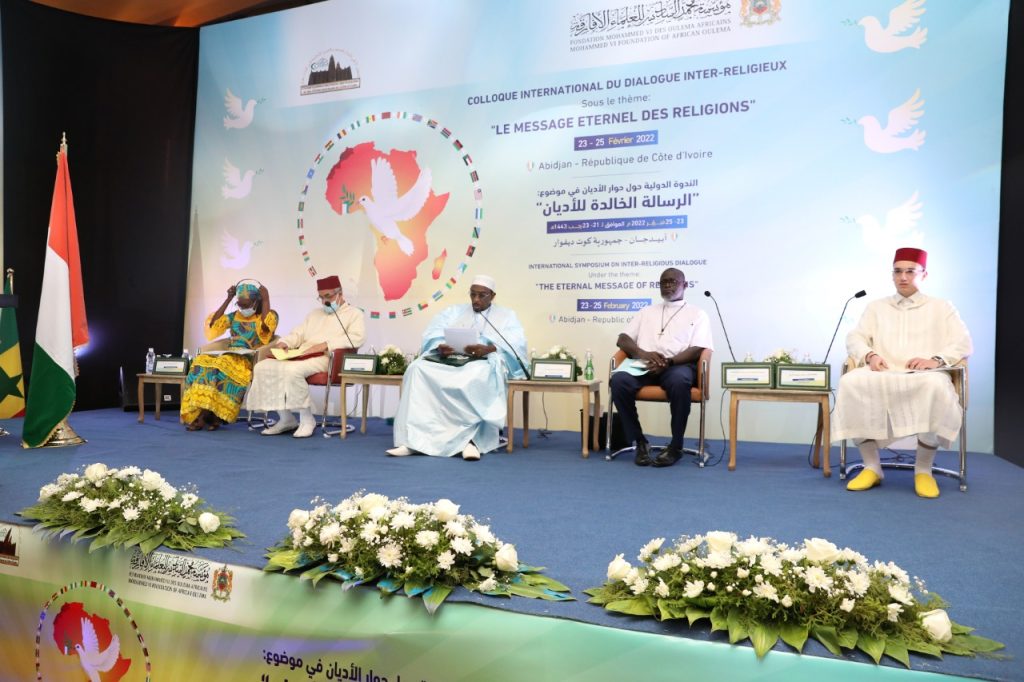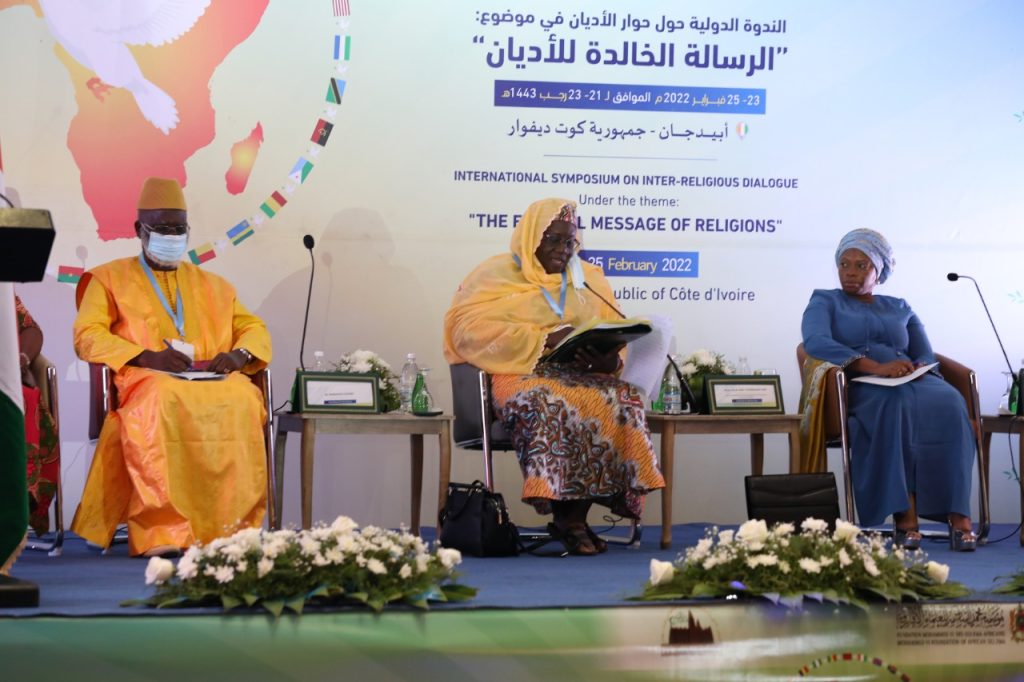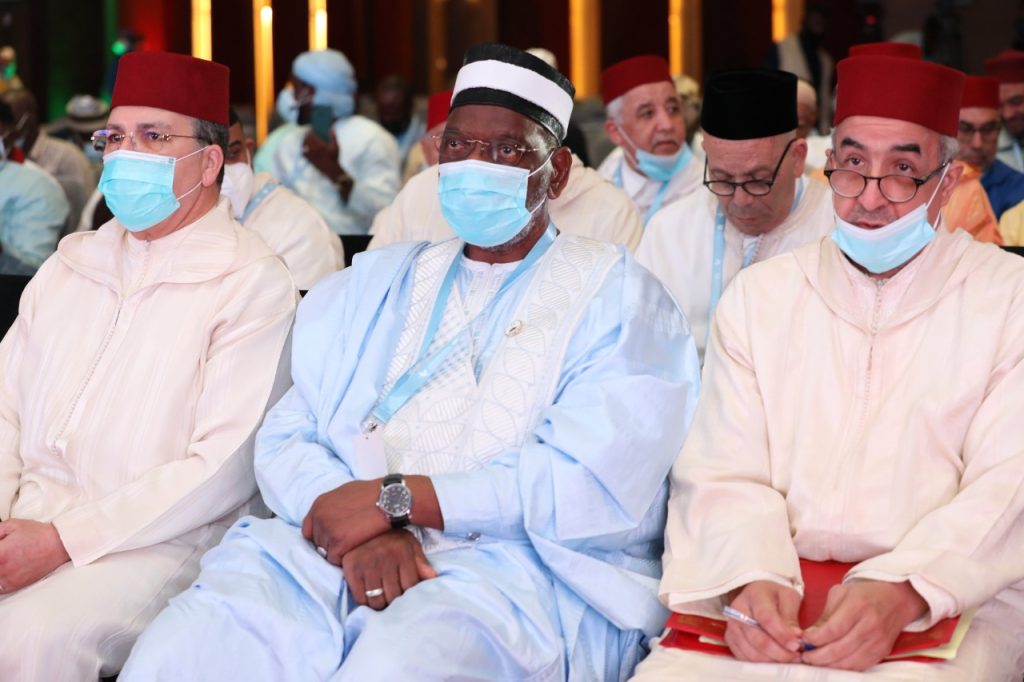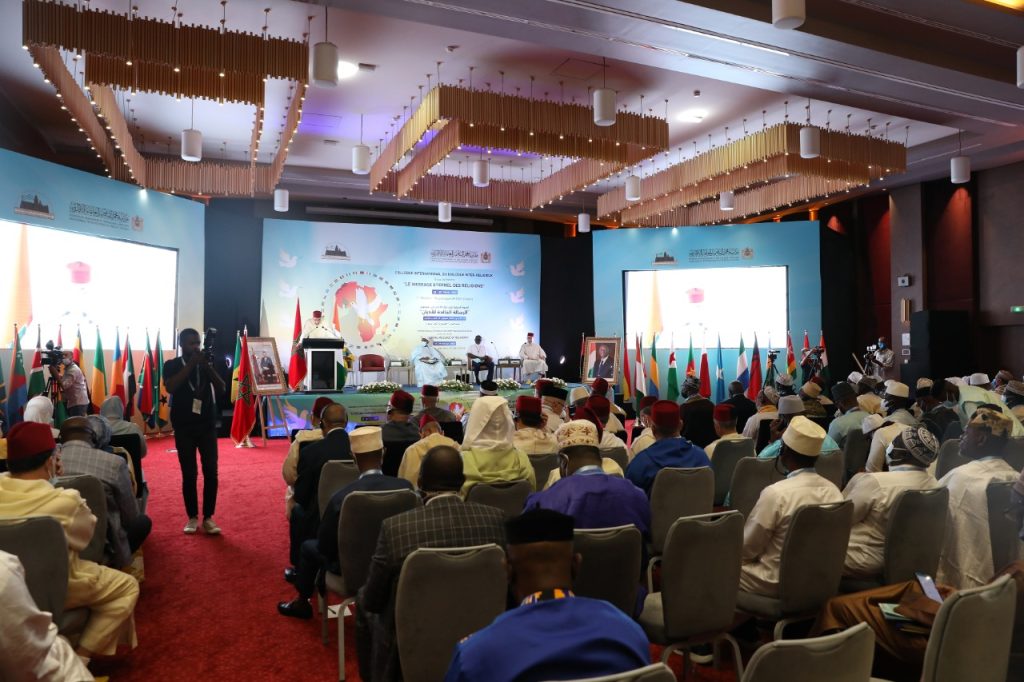
Abidjan, Cote d’Ivoire— Participants at the on- going international interfaith symposium in Abidjan (from 23-26 February) have formulated five different sub-themes to make for a more comprehensive approach to the issue of religious intolerance both in Côte d’Ivoire and Africa as a whole.

Adherents of various faith groups – mainly Muslims, have been increasingly confronted with the questions of religious violence and extremism being pepetrated by a few individuals and various groups of non-state actors across Africa.

However, embedded in all religions – particularly Islam, is the ideal of peace and tolerance.
The first theme deliberated on the role of the family and the school – considering the crucial role of parents as the first agent of early childhood education – where the “building blocks” of behaviour are moulded and nurtured – to be built upon by the school.

The second theme looked at the role of the Ivorian and African civil society groups – considering their huge socio-political impacts as policy actors and influencers on the continent.

Training and sensitization of religious leaders is the third theme being deliberated on. This is perhaps the most crucial short term measure – considering the huge recognition faith leaders are accorded in Africa. Armed with the right, moderate, human-centered orientation, religious leaders will play an invaluable role in nurturing inter-faith peace and tolerance.

The joint-roles of religion (itself), communication, and acts of preaching is the fourth theme deliberated upon. Religion, by its compelling power in influencing behavior is an effective tool in the hands of its agents. Communication – particularly the traditional and modern forms of communication through the social media – holds a strong potential in influencing behavior – more especially for those who rely on this means of information to make sense of the day-to-day issues. Acts of preaching itself hold one of the most effective influence on individuals and society at large.

The fifth theme discussed was the role of public authorities and religious stakeholders in facing up to the issues of radicalization and violent extremism. In deed, government – as the formulator and driver of public policy, has a crucial role to play in providing the needed impetus, tools, and incentives to undertake effective public education – and this could have maximum impacts in collaboration with various faith-based stakeholders across the continent.
From Alhassan Y. Al-Waiz, ANA Diplomatic and Foreign Affairs Editor
